
Blood, Sweat & Tears is an American jazz rock music group founded in New York City in 1967, noted for a combination of brass with rock instrumentation. BS&T has gone through numerous iterations with varying personnel and has encompassed a wide range of musical styles. Their sound has merged rock, pop and R&B/soul music with big band jazz.
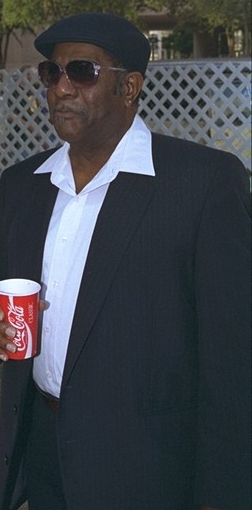
Johnnie Clyde Johnson was an American pianist who played jazz, blues, and rock and roll. His work with Chuck Berry led to his induction into the Rock and Roll Hall of Fame. He was posthumously awarded the Congressional Gold Medal for breaking racial barriers in the military as a Montford Point Marine, where he endured racism and inspired social change while integrating the previously all-white Marine Corps during World War II.

Michael Bernard Bloomfield was an American blues guitarist and composer. Born in Chicago, he became one of the first popular music stars of the 1960s to earn his reputation almost entirely on his instrumental prowess, as he rarely sang before 1969. Respected for his guitar playing, Bloomfield knew and played with many of Chicago's blues musicians before achieving his own fame and was instrumental in popularizing blues music in the mid-1960s. In 1965, he played on Bob Dylan's Highway 61 Revisited, including the single "Like a Rolling Stone", and performed with Dylan at that year's Newport Folk Festival.

Al Kooper is a retired American songwriter, record producer, and musician, known for joining and naming Blood, Sweat & Tears, although he did not stay with the group long enough to share its popularity. Throughout much of the 1960s and 1970s he was a prolific studio musician, including playing organ on the Bob Dylan song "Like a Rolling Stone", French horn and piano on the Rolling Stones song "You Can't Always Get What You Want", and lead guitar on Rita Coolidge's "The Lady's Not for Sale". Kooper produced a number of one-off collaboration albums, such as the Super Session album that saw him work separately with guitarists Mike Bloomfield and Stephen Stills. In the 1970s Kooper was a successful manager and producer, recording Lynyrd Skynyrd's first three albums. He has had a successful solo career, writing music for film soundtracks, and has lectured in musical composition. Kooper was selected for induction for the Rock and Roll Hall of Fame in 2023.

"Like a Rolling Stone" is a song by the American singer-songwriter Bob Dylan, released on July 20, 1965, by Columbia Records. Its confrontational lyrics originated in an extended piece of verse Dylan wrote in June 1965, when he returned exhausted from a grueling tour of England. Dylan distilled this draft into four verses and a chorus. "Like a Rolling Stone" was recorded a few weeks later as part of the sessions for the forthcoming album Highway 61 Revisited.

Elvin Richard Bishop is an American blues and rock music singer, guitarist, bandleader, and songwriter. He was inducted into the Rock and Roll Hall of Fame as a member of the Paul Butterfield Blues Band in 2015, and in the Blues Hall of Fame as a solo artist in 2016.
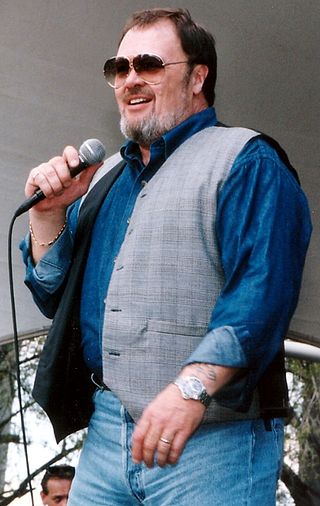
David Clayton-Thomas is a Grammy Award-winning Canadian musician, singer, and songwriter, best known as the lead vocalist of the American band Blood, Sweat & Tears. Clayton-Thomas has been inducted into the Canadian Music Hall of Fame and in 2007 his jazz/rock composition "Spinning Wheel" was enshrined in the Canadian Songwriter's Hall of Fame. In 2010, Clayton-Thomas received his star on Canada's Walk of Fame.
"This Diamond Ring" is a 1965 song written by Al Kooper, Bob Brass and Irwin Levine. The original demo was sung by Jimmy Radcliffe. It was first released as a single by Sammy Ambrose on Musicor #1061, then by Gary Lewis & the Playboys on Liberty #55756. Lewis' version charted first, number 101 on the January 2, 1965, Billboard "Bubbling Under" chart. Both versions charted on January 9, Lewis still at number 101 and Ambrose at number 117. Ambrose dropped off the chart at that point, but Lewis made number 65 on the Billboard Hot 100 chart the next week and his version continued to climb until it reached number 1 on February 20, 1965.
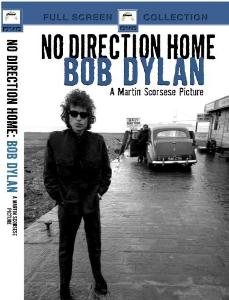
No Direction Home: Bob Dylan is a 2005 documentary film by Martin Scorsese that traces the life of Bob Dylan, and his impact on 20th-century American popular music and culture. The film focuses on the period between Dylan's arrival in New York in January 1961 and his "retirement" from touring following his motorcycle accident in July 1966. This period encapsulates Dylan's rise to fame as a folk singer and songwriter where he became the center of a cultural and musical upheaval, and continues through the electric controversy surrounding his move to a rock style of music.
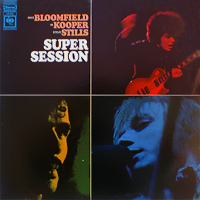
Super Session is an album by singer and multi-instrumentalist Al Kooper, with guitarists Mike Bloomfield on the first half and Stephen Stills on the second half. Released by Columbia Records in 1968, it peaked at No. 12 on the Billboard 200 during a 37-week chart stay and was certified gold by RIAA.

The Blues Project was an American band formed in New York City's Greenwich Village neighborhood in 1965. The group's original iteration broke up in 1967. Their songs drew from a wide array of musical styles. They are most remembered as one of the most artful practitioners of pop music, influenced as it was by folk, blues, rhythm & blues, jazz and the pop music of the day.

Jimmy Vivino is an American guitarist, keyboard player, singer, producer, and music director. He is best known as having been the leader of Jimmy Vivino and the Basic Cable Band, the house band for the TBS late night program Conan. He was also a member of The Tonight Show Band, the house band on The Tonight Show with Conan O'Brien and its predecessor, Late Night with Conan O'Brien on NBC. Vivino has also played with many rock bands, including being a member of Beatles tribute band The Fab Faux. He is the younger brother of actor Floyd Vivino and Basic Cable Band bandmate Jerry Vivino.

By 1965, Bob Dylan was the leading songwriter of the American folk music revival. The response to his albums The Freewheelin' Bob Dylan and The Times They Are a-Changin' led the media to label him the "spokesman of a generation".
Little Buster was an American soul and blues musician. He was born sighted, but developed glaucoma at the age of three. By the time his vision was completely gone, he was fluent on six instruments, including the guitar.
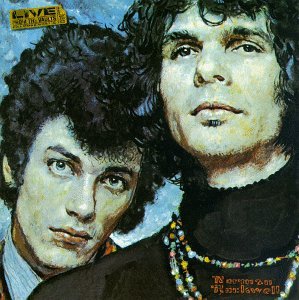
The Live Adventures of Mike Bloomfield and Al Kooper is a double album recorded at the Fillmore West venue; the album is a successor to the studio album Super Session, which included Stephen Stills in addition to Bloomfield and Kooper, and had achieved commercial and critical success earlier in 1968.

"You Don't Love Me" is a rhythm and blues-influenced blues song recorded by American musician Willie Cobbs in 1960. Adapted from Bo Diddley's 1955 song "She's Fine She's Mine", it is Cobbs' best-known song and features a guitar figure and melody that has appealed to musicians in several genres.

Steven Katz is an American guitarist, singer, and record producer who is best known as a member of the rock-pop-jazz group Blood, Sweat & Tears. Katz was an original member of the rock bands the Blues Project and American Flyer. As a producer, his credits include the 1979 album Short Stories Tall Tales for the Irish band Horslips, and the Lou Reed albums Rock 'n' Roll Animal and Sally Can't Dance and the Elliott Murphy album Night Lights.

Seen a Ghost is an album by the American alternative rock band Honeydogs, released in 1997. It was the band's first album for a major label.
A backstage pass is a pass which allows its bearer access to employees-only areas at a performance venue. Backstage pass may also refer to:
"Life Itself" is a song by English musician George Harrison from his 1981 album Somewhere in England. Harrison also included it on his 1989 greatest-hits compilation Best of Dark Horse. As a love song to God, the track served as the artist's most overtly religious musical statement since 1974. The lyrics offer praise to Christ, Vishnu, Jehovah and Buddha, thereby marking a return to the concept of a universal deity, regardless of religious demarcation, that Harrison had first espoused in his 1970 hit single "My Sweet Lord".
















